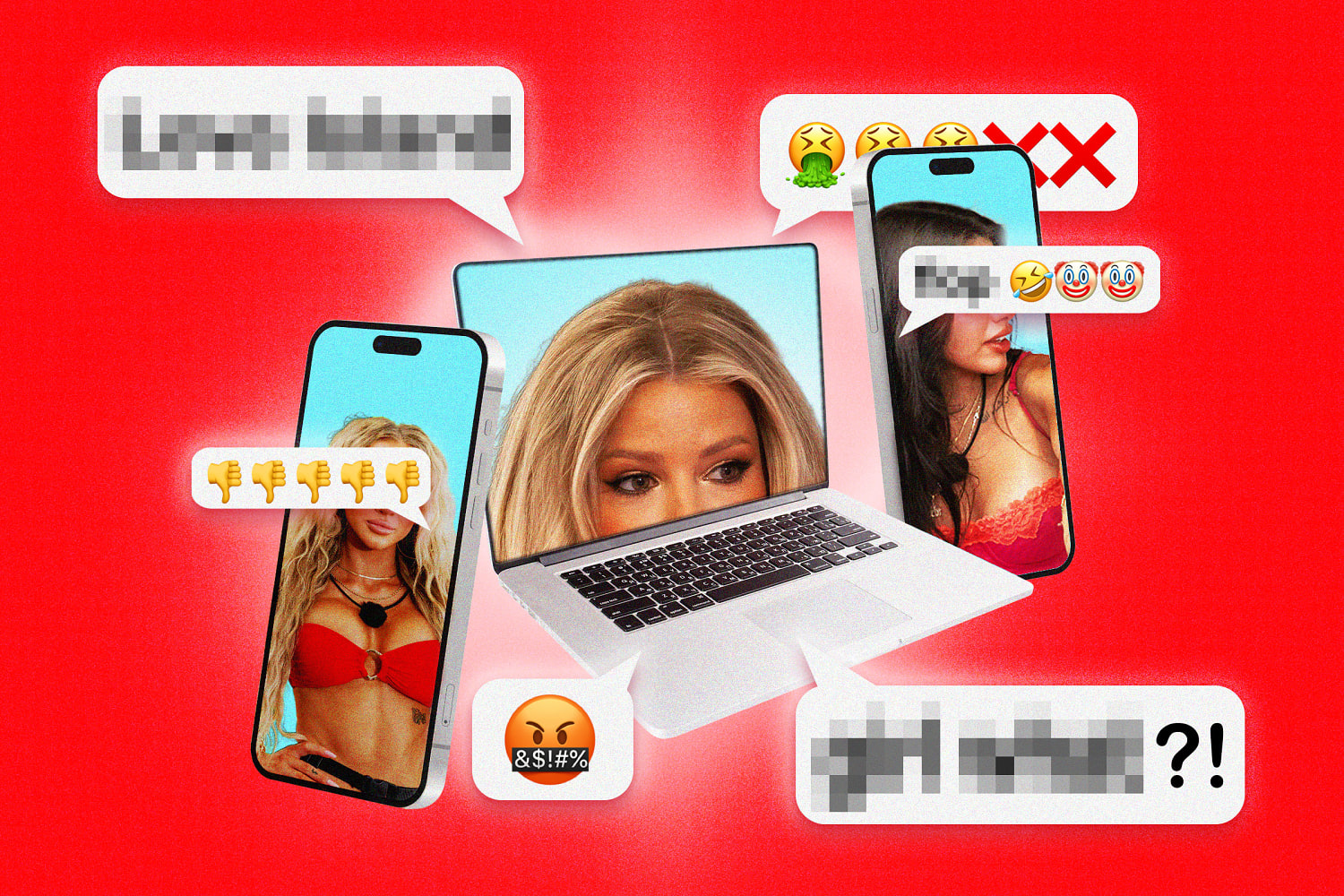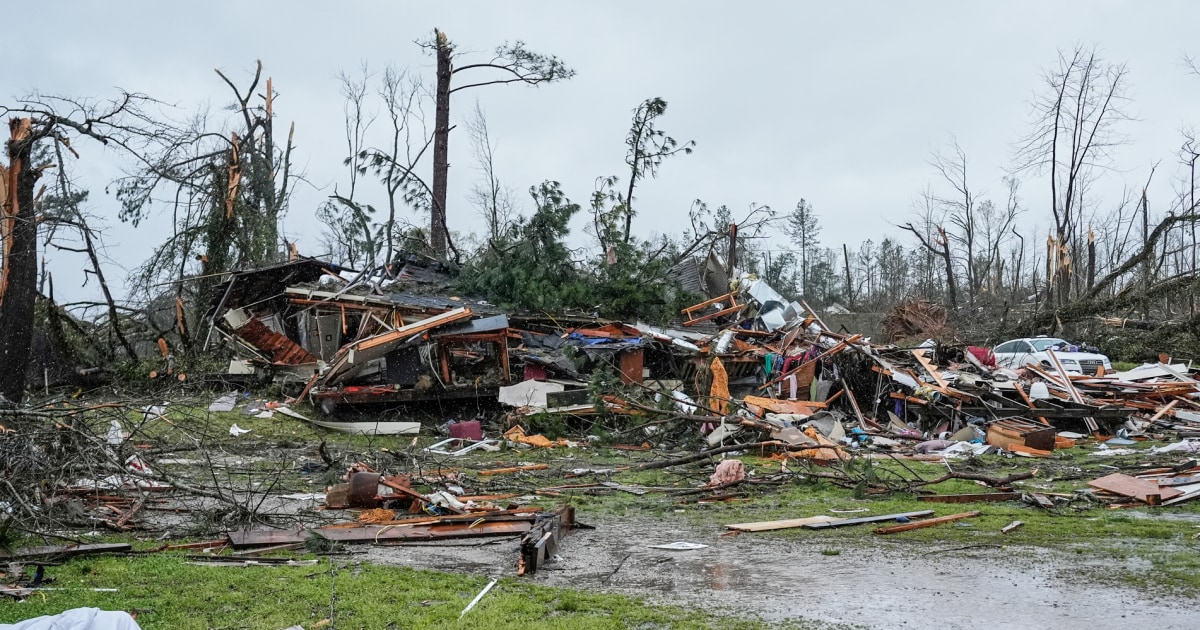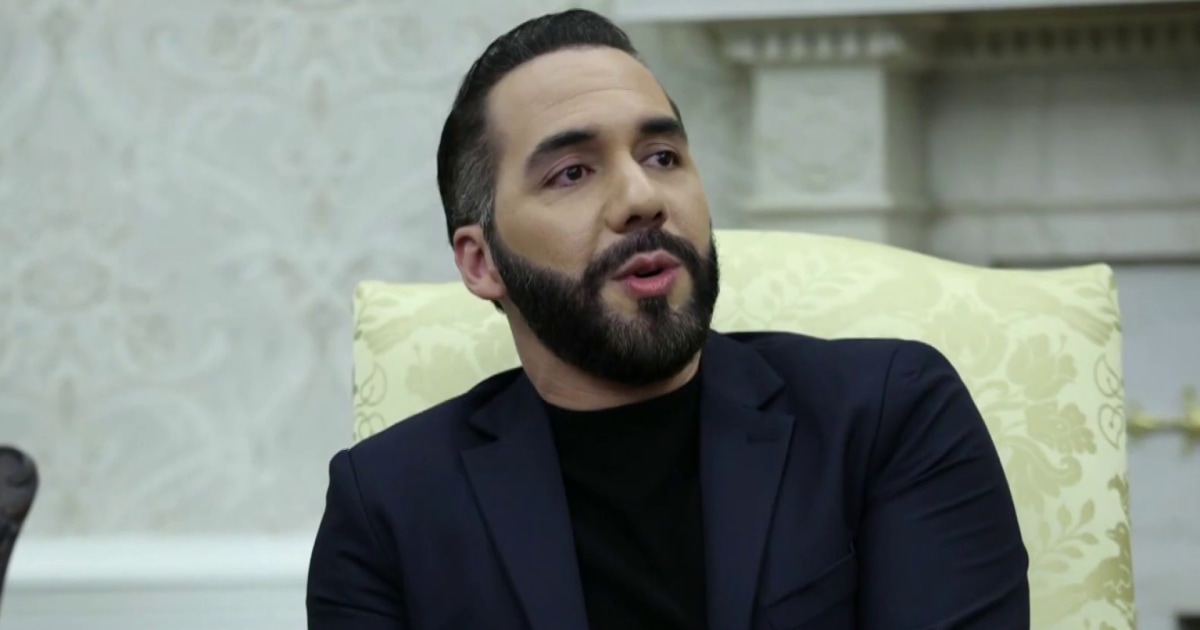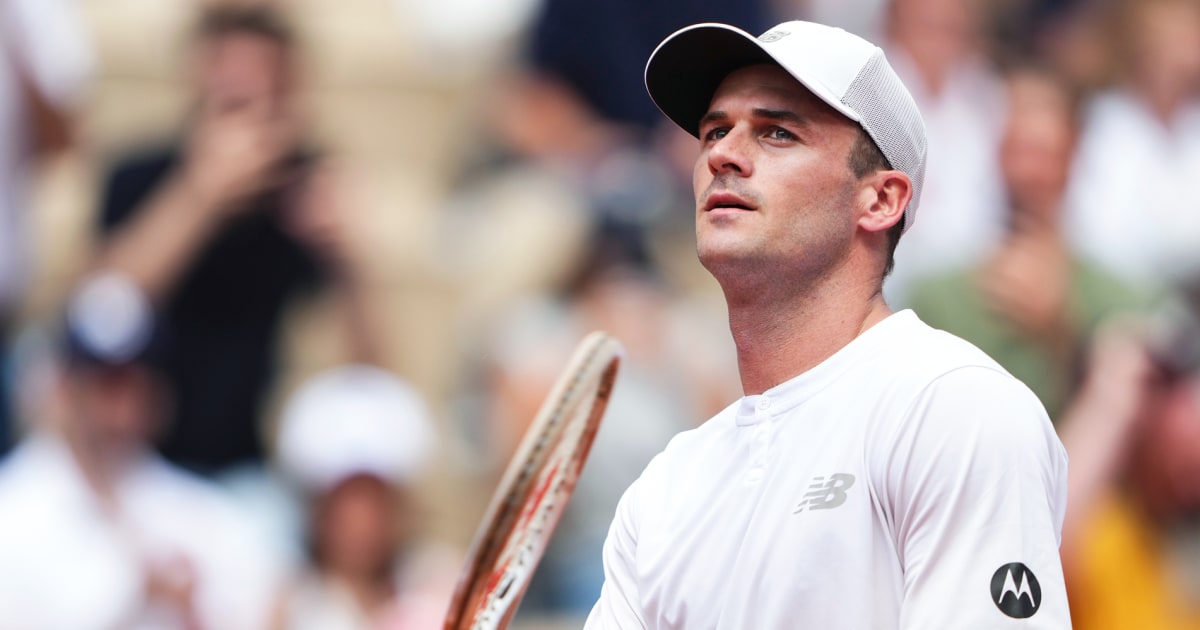
Inside the villa, the contestants on “Love Island USA” unplug from the real world as they try to find their match in Fiji.
But outside the walls of Casa Amor, the people who are vying for romance are being harassed online by the very fans who watch them obsessively on their televisions.
Each season of the dating show follows a group of singles over the course of six weeks as they race to couple up and form romantic connections, or risk getting dumped from the island. Throughout the show, the entry of new “bombshell” Islanders (what the contestants are often called) creates tension as the producers continue to insert psychological games and plot twists.
The American version, which airs on Peacock, is relatively newer compared to its U.K. counterpart — and has only recently seen a surge in popularity after last season’s standout contestants gained virality online. (NBCUniversal is the parent company of Peacock and NBC News.)
The fervent fan base has brought more viewership — but it has also unearthed the darker reality that plagues many franchise contestants when they achieve notoriety: It can come with a price. Fans have put the Islanders’ behaviors, physical appearances and political backgrounds under a microscope — leading to intensified harassment online.
This year, multiple contestants have been the target of criticism as viewers called out behaviors they described as “toxic,” “abusive” or “fake.” The cyberbullying toward contestants has become so rampant that the show has had to address it head-on. In a recent episode of season seven, which kicked off in June and drops new episodes nearly every night, the show aired a message urging fans to be kinder with their commentary. Similar messages were shared on the show’s social media accounts.
“‘Love Island’ is about reacting to how people behave, but they deserve to be called out for their behavior as a contestant on a reality TV show, not as a human being and as a person,” comedian Iain Stirling, narrator of the “Love Island” franchise, told NBC News in a recent Zoom interview.
Still, viewers have continued to cyberbully contestants online. Cierra Ortega, Olandria Carthen and Chelley Bissainthe, once fan favorites, became the latest targets of heated criticism this week after former fans said they now feel these were actually the “mean girls” on the show. Their Instagram accounts quickly shut down their comment sections. (Contestants’ accounts are typically run by family or friends while they are in the villa.)
Ortega’s profile lost hundreds of thousands of followers within days. Bissainthe’s account shared a lengthy post Wednesday calling out viewers who are “coming on her page to tear her down.”
“That level of hostility, especially toward someone isolated from the outside world, is disturbing,” the post read, adding that the behavior is “not just unfair, it’s borderline dangerous if we want to keep it a stack. Think about what you’re doing. This behavior isn’t normal. It’s actually kind of mentally unwell.”
Harassment is not an unfamiliar problem for the franchise, which launched in the United Kingdom in 2005 as “Celebrity Love Island” and ran for two seasons before being canceled and eventually rebooted in 2015 as “Love Island” on ITV4.
As social media has become a more ingrained part of the viewer experience, Islanders — like other reality TV stars — are often launched into overnight fame, which at times has been coupled with feelings of depression and anxiety amid heightened fan scrutiny.
While on the show, contestants remain secluded from the outside world and cannot access social media until after they exit — at which point they get to see all the viewer reactions that accumulated online during their time in the villa. Those returning to the online world are often greeted by a massive new fan base, along with a buildup of harsh comments about expressions they made, lines they uttered or the way they looked from unflattering angles.
Three people associated with the franchise — two former contestants and former host Caroline Flack — died by suicide, which prompted a British parliamentary committee inquiry in 2019 into reality TV.
The show, in recent years especially, has ramped up its efforts to help contestants navigate the mental health highs and lows of their experiences.
In 2022, ITV said contestants on the U.K. show will receive improved mental health and race training, which included having islanders “watch a video with interviews of former participants sharing their experiences on the show, including how to cope with being filmed 24/7 and dealing with social media trolling after leaving the villa,” The Guardian reported.
Longtime reality TV star Ariana Madix, now in her second year of hosting “Love Island USA,” said the “USA” contestants also receive support.
“We have amazing mental health professionals who are here on set,” Madix told NBC News in a recent Zoom interview. “So when the Islanders are in the hotels, before they go in, they work with them. They work with them while they’re on the show, and they work with them after the show as well. So they definitely have a lot of support here.”
Still, Madix, who rose to fame on Bravo’s “Vanderpump Rules,” said she worries about the contestants having to navigate the newfound spotlight.
“When you have an amount of time in the industry, you’re able to handle those things,” she said. “I think that for these Islanders, it’s their first six weeks… I feel like it’s new, and it’s even more difficult to deal with.”
Early on in the season, contestant Huda Mustafa emerged as a polarizing figure on the show, with thousands online analyzing her communication habits and criticizing her onscreen behavior.
The vitriol grew so loud — with some commenters also taking aim at her friends and family members — that her ex-partner Noah Sheline posted a statement to his Instagram story in her defense. Sheline, who co-parents a child with Mustafa, urged viewers to “remember she’s still human, she has a daughter, and a life.”
Viewers also became fixated on the appearance of contestant Vanna Einerson during her brief time on the show, prompting one of her friends to speak out.
“Watching her get dragged on the internet is the worst thing ever,” content creator Lucy Clawson said in a TikTok video supporting Einerson. “This woman has a heart of gold and it’s so crazy to me that going on reality TV or having a following just validates people to bully them.”
And while the franchise presents as apolitical, political polarization in the U.S. has permeated fan discussions around “Love Island USA” this season. Internet sleuths have taken to investigating each Islander for signs of their political beliefs, often calling on others to vote off certain contestants based on theories about their politics.
It’s one thing to yell at your TV, and then it’s another thing to go into somebody’s mentions on social media. … People have lost the plot on that.
-Mel Stanfill, author of “Fandom Is Ugly: Networked Harassment in Participatory Culture”
In episode two, contestant Yulissa Escobar abruptly exited the series after video clips surfaced online that appear to show her using racist language while on a podcast. Some outrage also erupted online after Mustafa, who is of Palestinian descent, kissed contestant Elan Bibas, who is Jewish Canadian. Some fans noticed his social media profile appeared to follow at least one pro-Israel account, which people suggested meant he was anti-Palestinian.
Media studies scholar Mel Stanfill, author of “Fandom Is Ugly: Networked Harassment in Participatory Culture,” said the illusion of “reality” in reality TV invites the kind of sleuthing that encourages viewers to form their own theories about what the truth is, even when they know contestants are selectively edited.
The group mentality facilitated by social media also makes it easier to be swayed into a strong stance by others online, Stanfill said.
“It’s one thing to yell at your TV, and then it’s another thing to go into somebody’s mentions on social media … people have lost the plot on that,” Stanfill said. “The people who are doing it think about it as a game. They think about it as entertainment. They don’t think that there’s a person on the other end. It’s easy to have that distance from the human cost, and there is a real human cost.”
The show continues to generate massive buzz online. But since the PSA aired, many fans appear to have rejected the anti-bullying plea, with some also suggesting that the producers should take their own message to heart.
A publicist for Peacock did not immediately respond to a request for comment.
Madix said that while fans of the show should enjoy the discourse around it, viewers can often cross a line when that enthusiasm bleeds into hate or harassment.
“I feel like there is a beautiful way to engage with the ‘Love Island’ fan community without doxing and harassing cast members, their families, things like that,” Madix said. “That is, to me, not a true fan of the show. I think if you are a fan of the show, you would never behave that way.”








